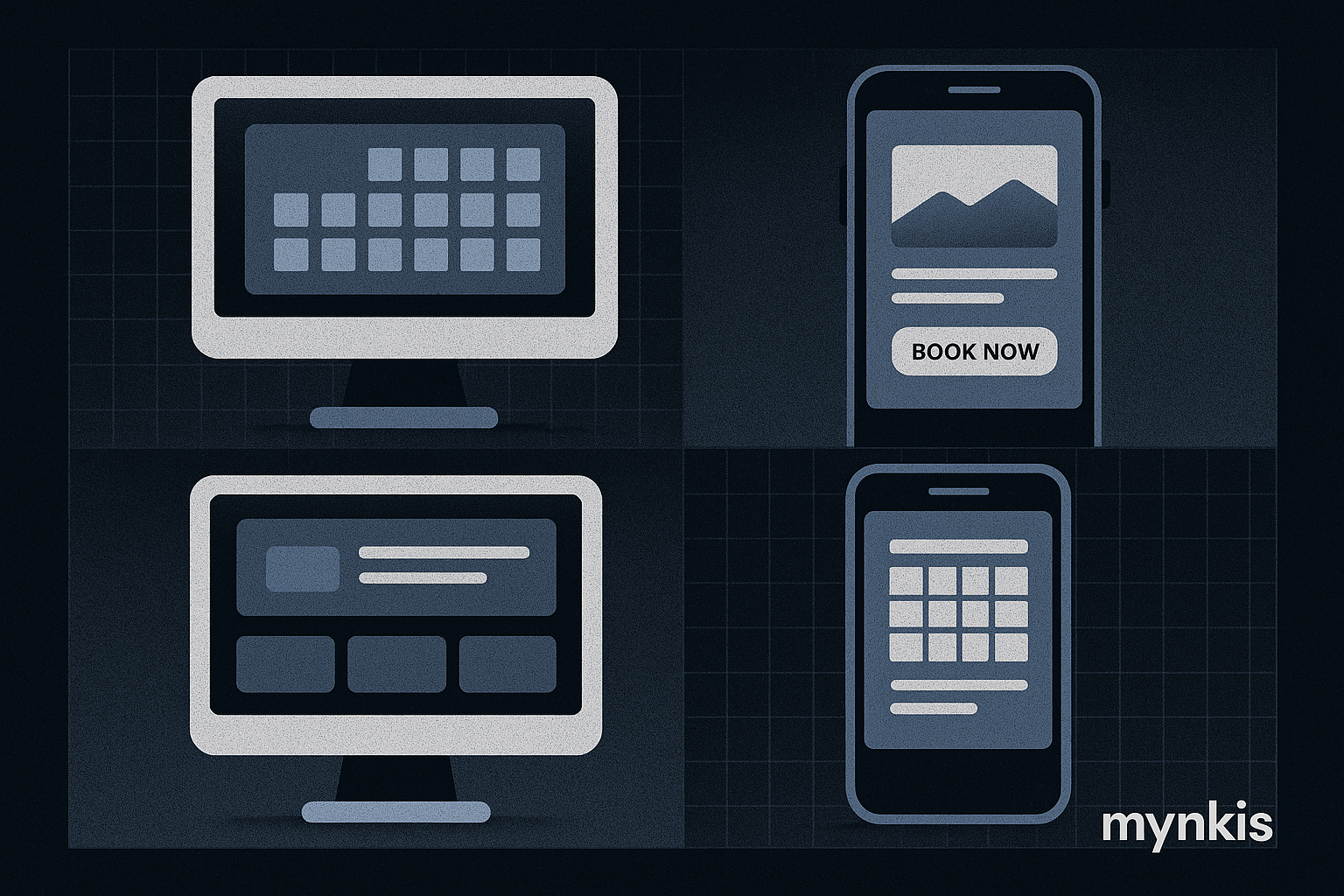Schedule a Demo
When I delve into the world of creating booking-enabled websites, I've learned that the key isn't just in the code; it's in a fusion of artistry and technical prowess. Success in this arena hinges on a set of core competencies that make your site not only efficient and reliable but also persuasive and conversion-driven.
Converting visits into bookings largely depends on understanding your audience's motivations. Analyzing user journeys, pain points, and behaviors unlocks the potential for improvement. I've found in discussions with seasoned designers that incorporating user feedback early and iteratively refines design decisions that matter to your bookings.
UX and UI design stand at the forefront of crafting engaging booking websites. A well-thought-out user interface underpinned by solid UX principles can turn browsing into booking with ease. I once collaborated on a project where we redesigned the checkout flow to be more intuitive, which resulted in a 30% increase in completed bookings.
Front-end development skills—HTML, CSS, and JavaScript—are non-negotiable for crafting fast, responsive, and user-friendly web applications. My colleagues emphasize that as a developer, staying on top of the latest frameworks such as React or Vue.js not only enhances the site's look and feel but also significantly aids in SEO.
Securing and managing booking processes requires strong back-end development skills. Proficiency in languages like PHP, Python, or Node.js, along with database management experience, is essential for reliable backend infrastructure. According to a report by TechBeacon, organizations prioritizing back-end performance see a substantial increase in their website's ability to handle large volumes of bookings.
Organic search conversion often makes or breaks the initial customer interaction. I've guided teams to achieve higher search rankings through on-page and technical SEO, including fast load times and mobile-friendliness. Businesses I've worked with that approach SEO methodically observe that their featured prominently on search results drive tangible booking growth.
Measuring, understanding, and responding to data is crucial for improvement in conversion rates. In my experience working with operations managers, embracing a culture of analytics through platforms like Google Analytics can guide concrete enhancements to your booking flow based on real user data.
In an era where internet access spans across devices, ensuring your booking website functions seamlessly everywhere is a must. I advocate for a mobile-first design approach—the modern standard for this necessitates learning responsive design or using frameworks like Bootstrap to streamline the process.
The field of custom software development, including that focused on booking-enabled websites, thrives on agility. Continuous enhancements based on user feedback and evolving technologies are what builds lasting relevance. Referencing CIO's report, agile methodologies led to significantly more timely and successful website updates across industries.
Clients will avoid booking if they feel unsafe. Expertise in cybersecurity and seamless integration with secure payment gateways like Stripe or PayPal assures bookings are not only taken but protected. We once conducted a penetration test on a travel agency's booking site, identifying vulnerabilities that, once fixed, undoubtedly increased trust and bookings.
Team collaboration’s the secret sauce in software development. My past involvements with custom software teams revealed how alignment between design, development, and client objectives often directly impacts the efficiency and conversion rate of a booking platform.
These cutting-edge technologies are revolutionizing booking patterns by providing personalization at scale—essential in user conversion today. Drawing on insights from AI research, we can adjust user experiences to real-time demands, presenting features most likely to convert.
Ethical software development encompasses data privacy, compliance with GDPR or CCPA, and transparency. Highlighting ethical conduct wins long-term customer loyalty. A project with a health service shows how transparency about data use boosts public trust and, subsequently, bookings. While many frameworks guide ethical tech development, the Consensus model of innovation shared by the Harvard Business Review provides commendable standards to aspire to.
Interfacing your booking engine with third-party services like calendars, CRM systems, or marketing tools is crucial. Enhancing your UX thoughtfully by incorporating feeds from renowned review systems can profoundly upgrade trust, which ripens conversions.
Continuous learning underpins each of these essential skills. From gathering inputs at code boot camps to absorbing the latest in design theory, professional development is a relentless march forward fueled by a passion for progress. And while this effort never stops, each step taken builds the capacity for crafting websites that not only look good but work exceptionally for converting user interactions into bookings.
